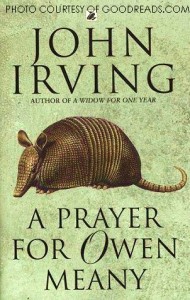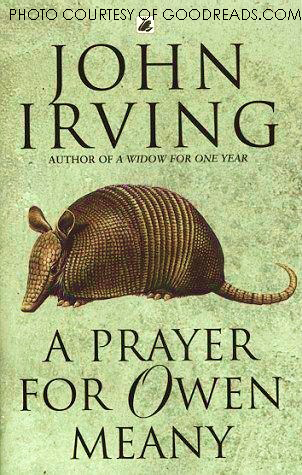
Salinger, Steinbeck, Fitzgerald and Hemingway are all readily recognized and praised as great American authors. There’s one name — though not necessarily in the same league as the others — that doesn’t often fall on that list but, I believe, deserves similar recognition: John Irving.
John Irving, author of The Cider House Rules and A Prayer for Owen Meany, is, to put it simply, one of my favorite authors. His development of characters and general storytelling have always struck me as sublime and bizarrely clever — whether it be with a small boy’s “wrecked” voice or the interweaving of past and present in A Prayer for Owen Meany. Irving, in many of his books, hands out stories and characters that have stuck with me, no matter how many other books I read, and this effect he’s had on me renders him unforgettable and therefore worthy of great notice.
As I said above, the characters Irving paints are remarkable. Dr. Wilbur Larch, an ether-abusing obstetrician at St. Cloud’s Orphanage in The Cider House Rules, Homer Wells, the boy who belongs to St. Cloud’s, and Owen Meany himself in A Prayer for Owen Meany are all very signature to their novels. Their quirks and habits — though for Owen Meany, everything is seemingly a quirk as there is nothing remotely normal about him — make them likable and easily identifiable. They are, in many ways, the keystone that holds each novel together.
That’s not to say other aspects in his novels are below par. The plot of The Cider House Rules is intriguing, and the themes in A Prayer for Owen Meany are idealistic and compelling. Irving’s writing style is almost Dickensian, the length and details of A Prayer for Owen Meany similar to many of Dickens’ works. Irving’s appreciation of Dickens is also clear in the presence of Great Expectations and David Copperfield in The Cider House Rules and A Christmas Carol in A Prayer for Owen Meany.
My appreciation of Irving has lead me to believe A Prayer for Owen Meany, specifically, is not given enough credit for its potential in schools. The religious themes, interesting characters and stimulating story make the novel prime for English classes. Thematically and personally accessible, Owen Meany demands thought and reflection from its audience — a quality prized in good books.
Irving may not be Faulkner, but some of his novels — The Cider House Rules, A Prayer for Owen Meany and The World According to Garp included — are brilliant, though occasionally (and often unfairly) disregarded. Irving deserves a greater appreciation, at least for the three aforementioned novels, and one day, I hope he will receive it.

Leave a Reply